To explore new horizons in the global food trade, Food Export staff embarked on a journey to the dynamic markets of Korea and Japan in October. This Trade Mission, centered around ingredients, food service, and retail products, presented a unique opportunity to immerse in these markets, gaining valuable insights into consumer preferences and emerging trends within the food industry.
Korea
The Korean segment of the trade mission proved to be an outstanding success, marked by active participation from suppliers, buyers, stakeholders, and staff. This experience included a series of activities, including retail tours and fostering numerous one-on-one interactions between suppliers and prospective buyers. Of particular note was the remarkable turnout of 152 one-on-one meetings, with 68 Korean companies participating. This level of engagement marks the high level of interest and enthusiasm generated by this event in the Korean market.
During the time in Korea, Food Export made several intriguing observations. Retail stores in Korea have made substantial strides in adopting environmentally friendly packaging and offering organically grown products, reflecting the country’s growing commitment to sustainability. Those on the trip observed a surge in the popularity of dairy, cheese, and snack items on Korean retail shelves, showcasing consumer tastes and preferences. Notably, Korean consumers hold American brand items in high regard, perceiving them as a safe and reliable choice. The ongoing preference for ready-to-eat meals was another noteworthy finding, emphasizing the significance of convenience, health, and time-efficiency in the Korean food market.
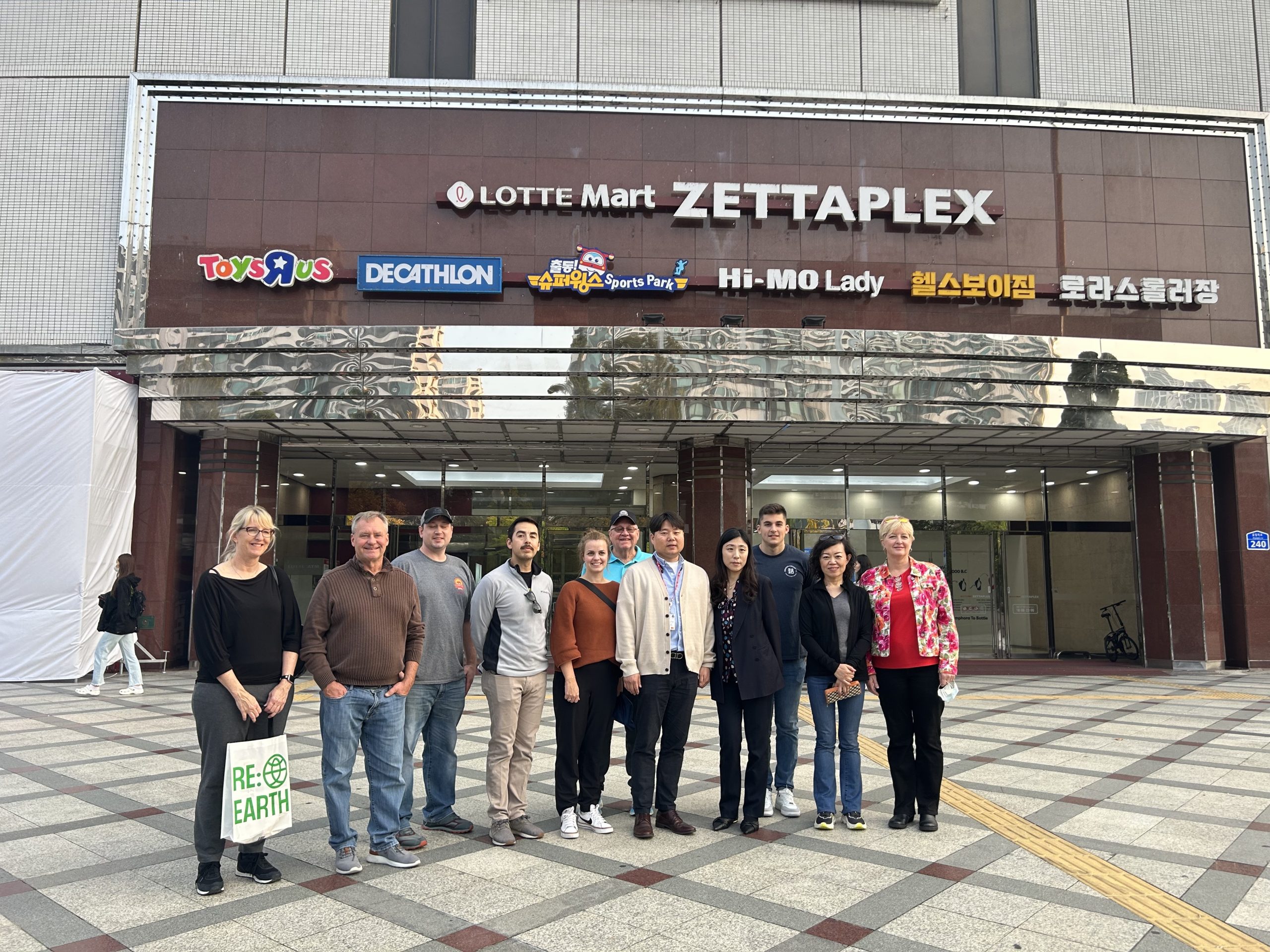
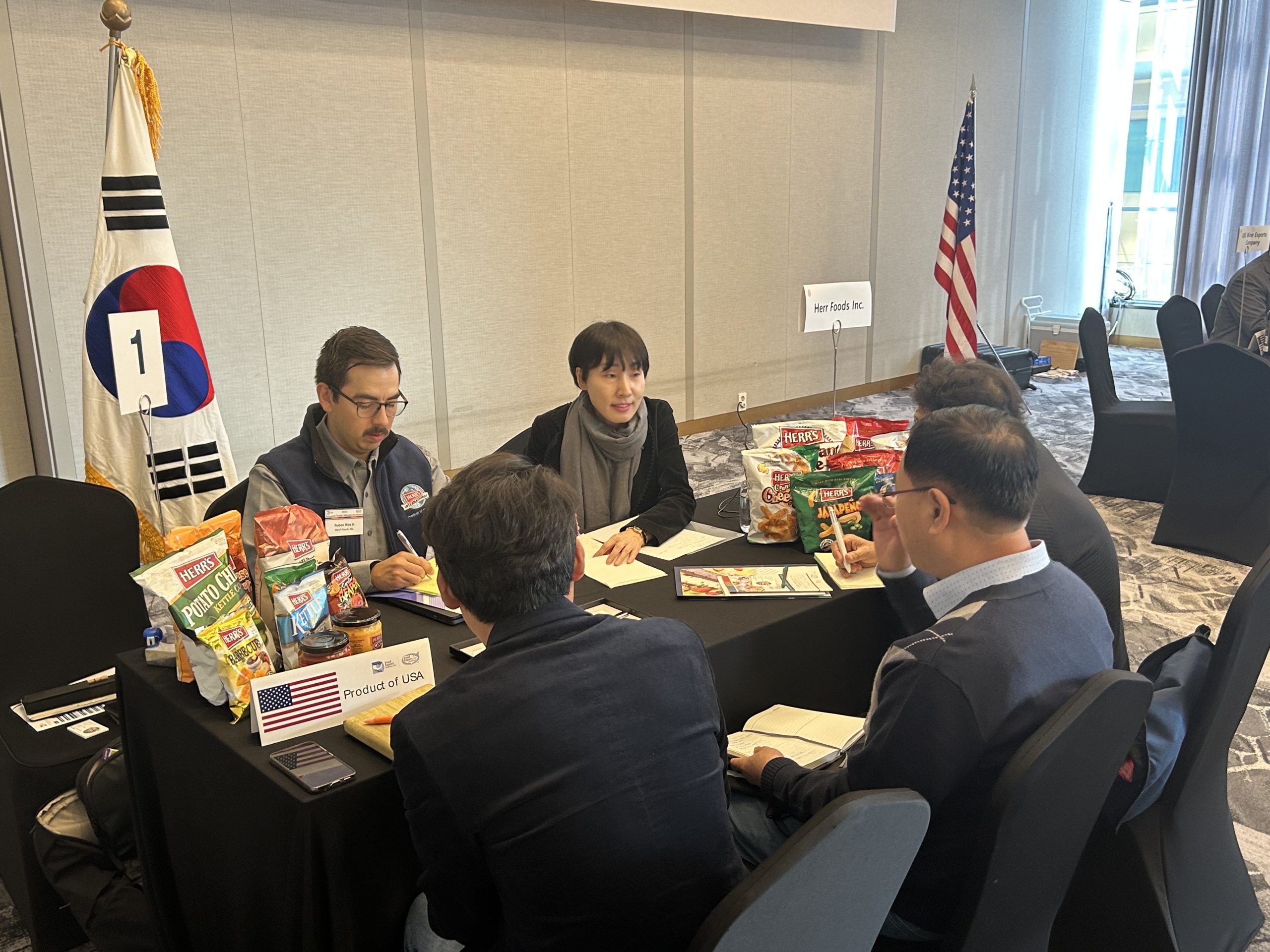
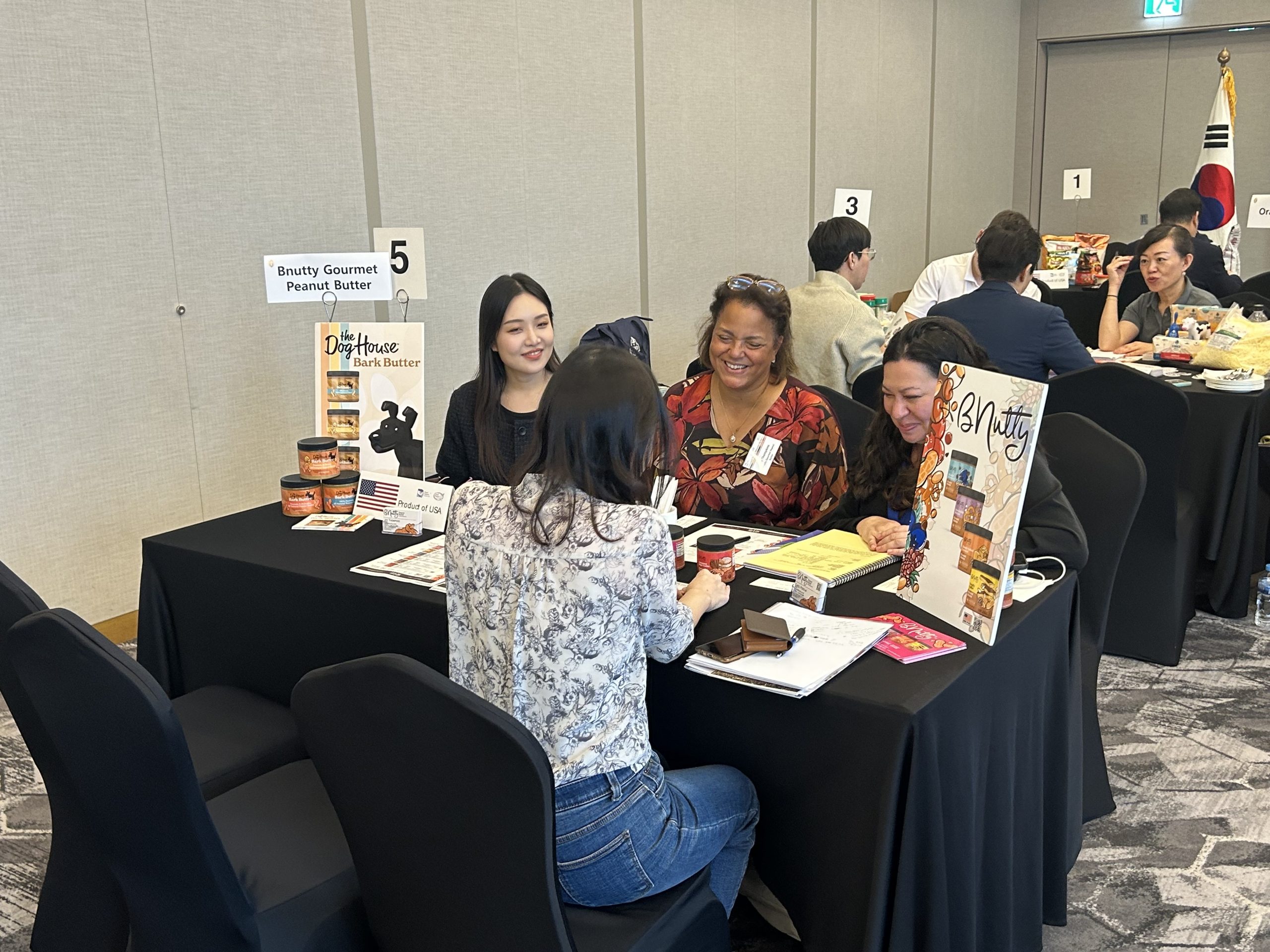
Japan
In the Japanese market, Food Export encountered a refined landscape of consumer behavior and preferences. Sustainability, while an important global concern, does not rank as the primary decision factor for food-related choices among Japanese consumers, as demonstrated by surveys. Instead, the focus has shifted towards ready-to-eat meals, commended for their convenience, healthiness, and time-efficiency. Consumers in Japan have displayed a growing affinity for plant-based options that incorporate ingredients like oats, almonds, and other alternatives to soybeans, which have fallen out of favor.
The Agricultural Trade Office (ATO) in Japan played a pivotal role in the trade mission, hosting a showcase event where individuals could exhibit their products to potential market stakeholders. This event enabled participants to showcase their products, while a total of 105 one-on-one meetings facilitated direct connections between buyers and suppliers, fostering collaboration, business growth, and sales.
Food Export’s participation in the Focused Trade Mission to Korea and Japan yielded valuable insights and opportunities for market expansion. The nature of these markets, as revealed through our interactions and observations, underlines the need for adaptability and innovation in the global food industry. With newfound knowledge and connections, the companies that attended are now well-equipped and continue to foster success in these regions. Food Export looks forward to building upon this trade mission and furthering its mission of promoting U.S. food and agricultural exports in these markets.
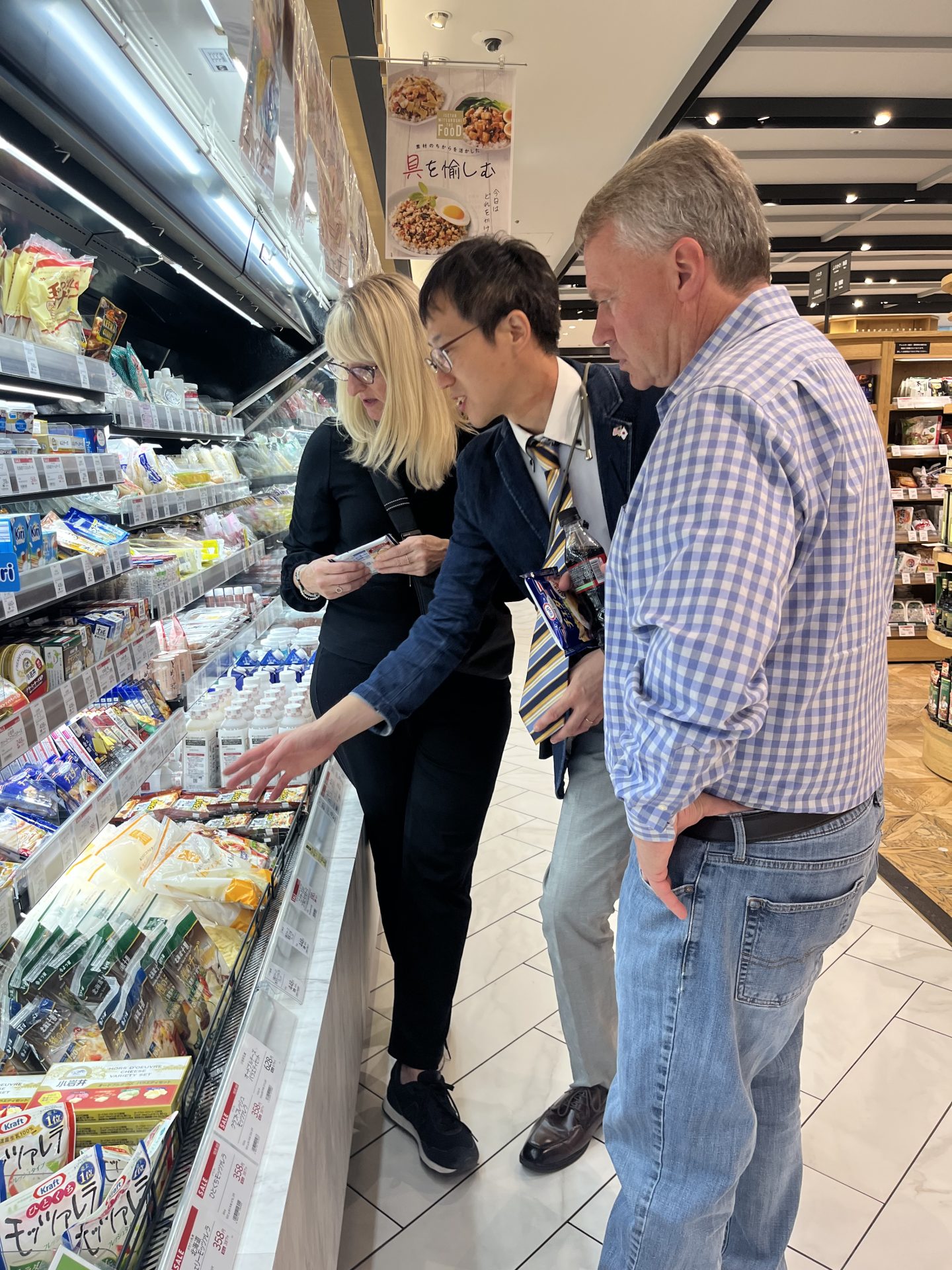
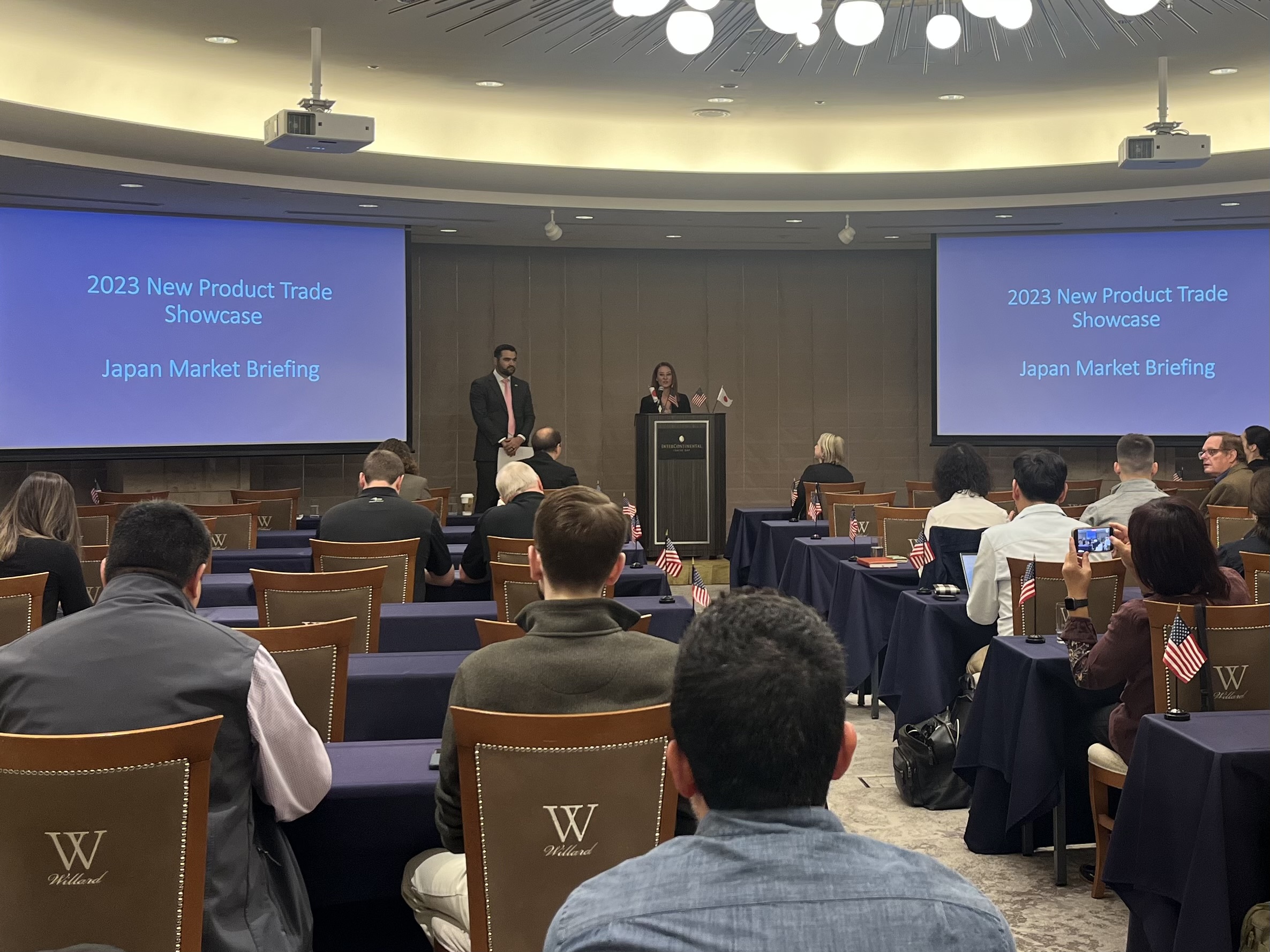
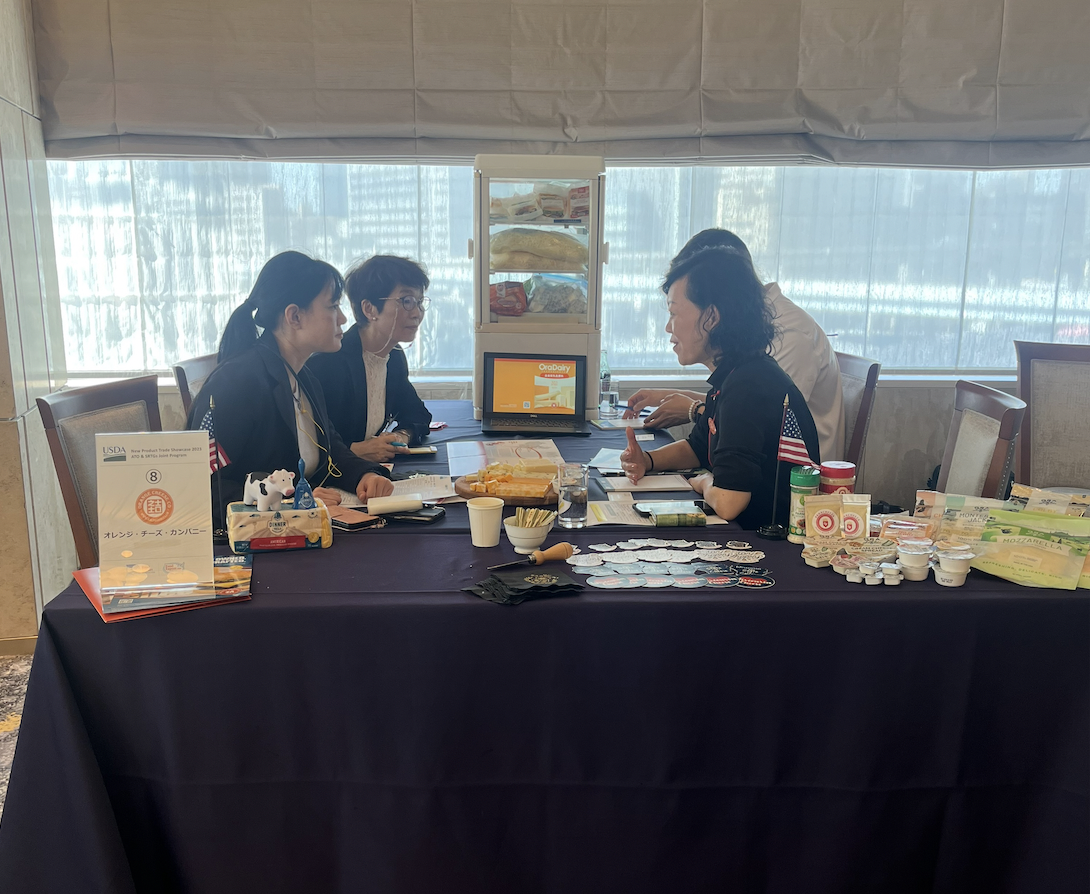
Interested in learning more about the Korean and Japanese markets? Schedule a virtual consultation with one of Food Exports In-Market Representatives to learn more!
Want to participate in the next Focused Trade Mission to Korea and Japan? Click HERE to register for the event!
Your Connection To Growth®
©2025 Food Export Association of the Midwest USA and Food Export USA–Northeast. All Rights Reserved.
Food Export–Midwest and Food Export–Northeast prohibits discrimination in all its programs and activities on the basis of race, color, national origin, religion, sex, gender identity (including gender expression), sexual orientation, disability, age, marital status, familial/parental status, income derived from a public assistance program, political beliefs, reprisal or retaliation for prior civil rights activity. (Not all bases apply to all programs.) Persons with disabilities who require reasonable accommodations or alternative means of communication for program information (e.g., Braille, large print, audiotape, American Sign Language, etc.) should contact us. Additionally, program information may be made available in languages other than English.
To file a program discrimination complaint, complete the USDA Program Discrimination Complaint Form, AD-3027, found online https://www.ascr.usda.gov/filing-program-discrimination-complaint-usda-customer.
Food Export–Midwest and Food Export–Northeast reserve the right to deny services to any firm or individual which, in the sole opinion of Food Export–Midwest and Food Export–Northeast, does not comply with FAS, MAP or Food Export–Midwest and Food Export–Northeast regulations or policies, or otherwise offer the best opportunity to achieve its mission of increasing food and agricultural exports. Submission of any false or misleading information may be grounds for rejection or subsequent revocation of any application or participation. Food Export–Midwest and Food Export–Northeast are equal opportunity employers and providers.
